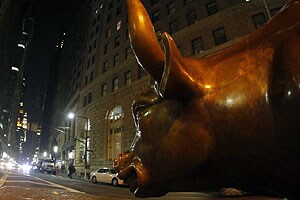After e-commerce firms, private equity investors are betting on banking and financial services companies followed by healthcare and life sciences firms, according to data compiled by Venture Intelligence.
The total value of investments by private equity companies in these two sectors crossed more than $1 billion in the first seven months of the current year, outpacing the total investments in these two sectors in 2014, the data showed.
Private equity investors poured in about $1.3 billion in 22 banking and financial services companies until August, surpassing the $769 million they had invested in 33 companies during 2014. Similarly, 22 healthcare and life sciences firms have attracted about $1.2 billion in private equity capital in the first seven months of 2015, compared with 52 firms that in total raised $918 million as funding in 2014, the data showed.
The surge in investments into banking and financial services sector was helped by the central government’s efforts to reach out to the hundreds of thousands of unbanked Indians through new products and services, said Harish HV, partner, Grant Thornton. “BFSI (banking, financial services and insurance) has huge potential since there is a lot of informal saving and loan products to bring under an organised platform,” Salve said.
Banking and financial services companies did attract PE capital in 2006 and 2007 as well, but macroeconomic challenges stoked by the global financial crisis derailed growth at that time.
This time around the situation is different say private equity investors.
Vishakha Mulye, managing director and chief executive of ICICI Venture, says the company’s focus “goes beyond banking to other financial intermediaries” such as insurance when it comes to funding. “Niche non-banking financial corporations that have developed a model with their expertise to deal in a specific product will also be interesting,” she said.
On the healthcare front, the third biggest beneficiary of private equity funding in 2015, robust domestic demand has driven private investment in this sector. Hospitals and support services have seen a rise in demand, creating opportunity for entrepreneurs and private equity investors.
“Overall domestic demand-driven sectors are making a comeback (when it comes to new investment opportunities for PE funds),” said Gopal Jain, managing partner at Gaja Capital. “For many years export-driven sectors like IT and pharma were in vogue. But domestic demand-driven sectors like education, healthcare, financial services and logistics may find favour now.”
Still, technology companies and especially e-commerce firms continue to be the best bet among private equity investors until now, both in terms of value and volume of investments. E-commerce companies saw an inflow of $1.9 billion in 106 deals till date compared with $3.9 billion that 99 companies got in 2014, Venture Intelligence data showed.
Going forward, Salve expects private equity funds to evaluate investment opportunities in companies that sell food products due to expected margin expansion on the back of declining packaging costs led by a fall in crude prices.
Investors will also be eyeing the country’s manufacturing sector with the Modi government seeking to provide impetus to this space. Auto, defence, aerospace and infrastructure are some key sectors expected to see increased investor interest in 12-18 months, according to Salve.



